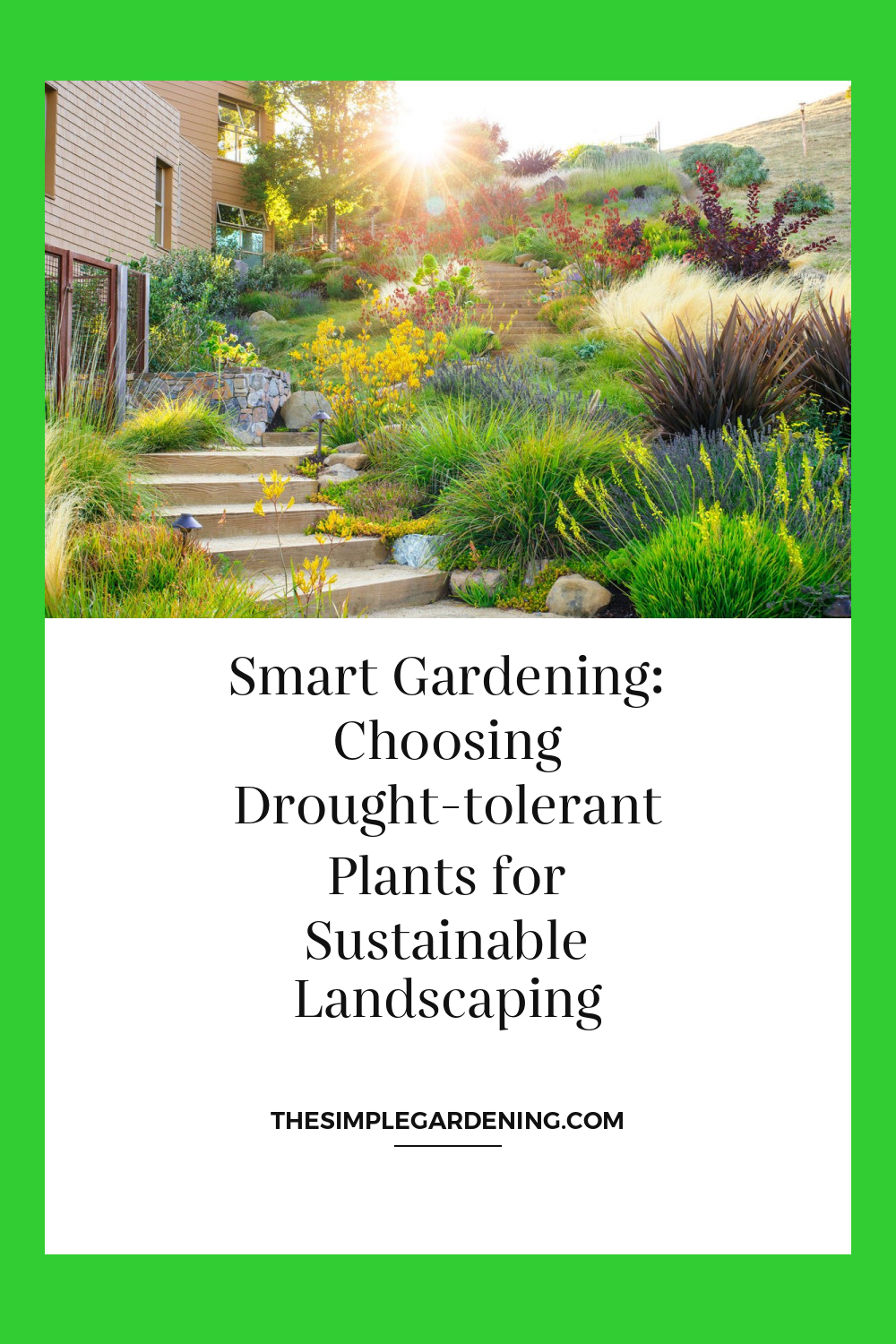Embarking on a journey towards sustainable gardening involves exploring cost-effective solutions that nurture soil health and foster thriving plant growth. Homemade compost tea emerges as a star player in this realm, offering gardeners a budget-friendly and eco-conscious approach to enriching their soils. Let’s delve into the world of compost tea and discover its myriad benefits for the budget-conscious gardener.
Overview of Compost Tea as a Cost-Effective and Sustainable Solution for Improving Soil Health
Compost tea stands as a testament to the ingenuity of gardeners seeking environmentally friendly alternatives to traditional soil amendments. This nutrient-rich elixir harnesses the power of beneficial microorganisms present in compost to fortify soil health and promote vibrant plant growth.
Benefits of Incorporating Compost Tea into Budget Gardening Practices
| Benefit | Description |
|---|---|
| Soil Enrichment | Infuses soil with essential nutrients, organic matter, and beneficial microorganisms. |
| Plant Vitality | Promotes robust plant growth, increased resilience to pests and diseases, and vibrant blooms. |
| Cost Savings | Offers a cost-effective alternative to commercial fertilizers and soil conditioners. |
| Environmental Sustainability | Reduces reliance on synthetic chemicals and minimizes environmental impact. |

Source Image: simplifygardening.com
Understanding Compost Tea
Compost tea serves as a liquid fertilizer brewed from compost and water, teeming with a diverse array of beneficial bacteria, fungi, and other microorganisms. This natural elixir serves as a potent tonic for soil and plants alike, fostering a harmonious ecosystem underground.
Contrasting Compost Tea with Traditional Composting Methods
| Aspect | Compost Tea | Traditional Composting |
|---|---|---|
| Microbial Concentration | High concentration of beneficial microorganisms. | Slow decomposition process may result in lower microbial activity. |
| Nutrient Availability | Nutrients readily available in soluble form for plant uptake. | Nutrients released gradually as compost decomposes. |
| Application Efficiency | Immediate benefits for soil and plants with foliar or root application. | Requires time for compost to mature before use in garden. |
Basic Ingredients
Crafting homemade compost tea requires a handful of basic ingredients, each playing a crucial role in the brewing process. The quality of these ingredients directly impacts the efficacy of the resulting brew.
Essential Components for Making Compost Tea
| Ingredient | Description |
|---|---|
| Compost | High-quality compost serves as the foundation, providing a diverse microbial community and nutrients. |
| Water | Clean, chlorine-free water is essential to avoid harming beneficial microorganisms. |
| Optional Additives | Amendments such as molasses, kelp meal, or fish emulsion can enhance microbial activity and nutrient content. |
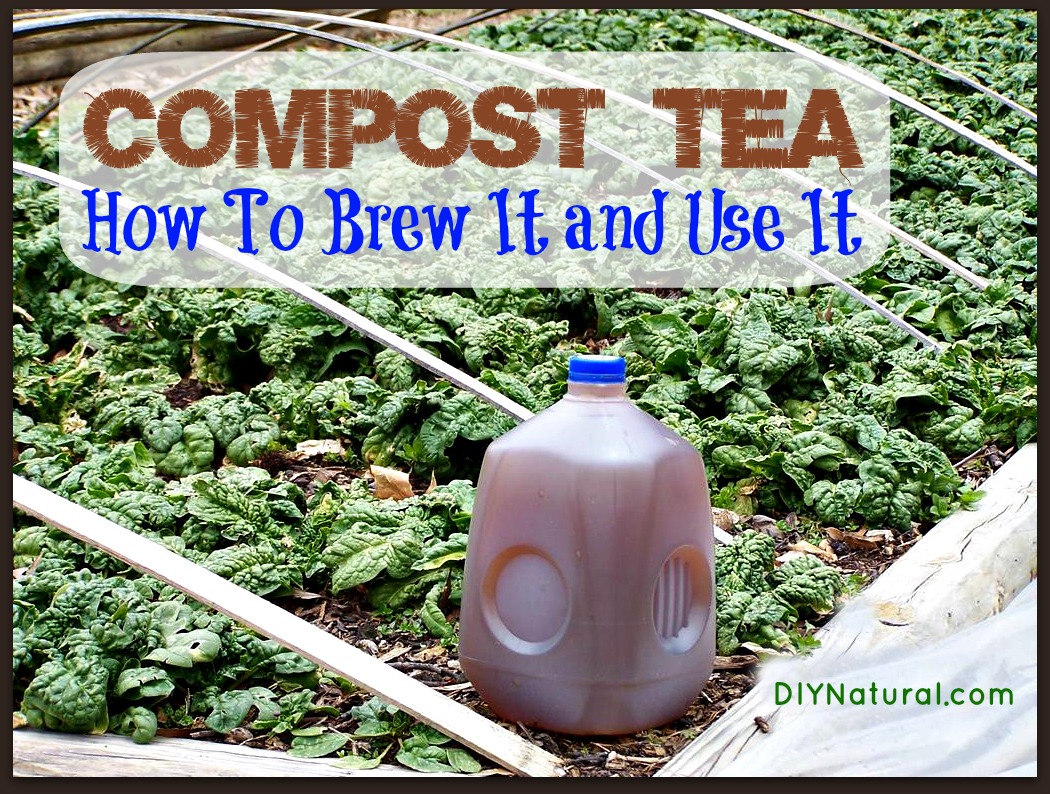
Source Image: diynatural.com
Equipment and Tools
Brewing compost tea requires a set of specialized equipment and tools to facilitate aeration, steeping, and straining processes. While some items are indispensable, creative alternatives can be utilized for those on a budget.
Necessary Equipment for Brewing Compost Tea
| Equipment | Description |
|---|---|
| Brewing Vessel | Container for steeping compost in water, equipped with aeration capabilities. |
| Air Pump | Provides oxygenation to the brewing solution, promoting microbial growth. |
| Strainer | Filters out solid particles from the finished compost tea, ensuring a smooth application. |
DIY Alternatives: Substitute a brewing vessel with a large bucket or barrel, an air pump with an aquarium pump, and a strainer with cheesecloth or a fine mesh sieve.
Compost Tea Recipes
The art of brewing compost tea lies in mastering different recipes tailored to specific gardening needs and available ingredients. Whether aiming for optimal soil fertility or bolstering plant immune systems, there’s a compost tea recipe for every gardener.
Brewing Different Types of Compost Tea
| Type of Tea | Description |
|---|---|
| Aerobic Tea | Oxygen-rich brew favored for promoting microbial diversity and nutrient availability. |
| Anaerobic Tea | Oxygen-deprived brew suitable for targeting specific pathogens and enhancing root growth. |
Variations: Experiment with ingredient ratios and additional additives to customize compost tea recipes according to soil conditions and plant requirements.

Source Image: www.pinterest.com
Brewing Process
The brewing process of compost tea requires attention to detail and adherence to optimal conditions to ensure the proliferation of beneficial microorganisms and nutrient extraction from compost.
Steps in Brewing Compost Tea
- Preparation: Gather equipment, compost, and optional additives.
- Steeping: Combine compost and water in the brewing vessel, allowing it to steep for a designated period.
- Aeration: Introduce oxygen into the brewing solution using an air pump to promote microbial growth.
- Straining: Filter the finished compost tea to remove solid particles and ensure even application.
Factors to Consider: Temperature, brewing time, and aeration levels play pivotal roles in determining the quality of compost tea.
Application Methods
Once brewed, compost tea can be applied to garden soil through various methods, each offering unique benefits and targeting specific areas of plant health and soil fertility.
Different Application Methods for Compost Tea
| Method | Description |
|---|---|
| Foliar Spraying | Application of compost tea directly onto plant leaves, promoting nutrient absorption and disease resistance. |
| Soil Drenching | Pouring compost tea directly onto the soil surface, delivering nutrients and beneficial microorganisms to plant roots. |
| Root Soaking | Immersion of plant roots in compost tea solution, stimulating root growth and enhancing nutrient uptake. |
Tips for Application: Apply compost tea during the cooler parts of the day to minimize stress on plants and maximize absorption.

Source Image: homesteadandchill.com
Creating Compost Tea for Soil Health
Benefits for Soil Health
The application of compost tea offers a multitude of benefits for soil health, fostering a thriving ecosystem underground and promoting optimal conditions for plant growth.
Benefits of Using Compost Tea for Soil Health
| Benefit | Description |
|---|---|
| Nutrient Availability | Enhances nutrient cycling and availability, promoting healthy soil structure and fertility. |
| Disease Suppression | Suppresses harmful pathogens and diseases through competitive exclusion and microbial antagonism. |
| Soil Structure Improvement | Improves soil structure and water retention capacity, reducing erosion and runoff. |
Promoting Plant Growth
Compost tea serves as a catalyst for promoting vigorous plant growth, stimulating root development, and enhancing overall plant vitality.
Role of Compost Tea in Plant Growth Promotion
| Aspect | Description |
|---|---|
| Root Development | Stimulates root growth and branching, enabling plants to access water and nutrients more efficiently. |
| Nutrient Uptake | Enhances nutrient uptake and absorption, leading to robust growth, lush foliage, and bountiful blooms. |
| Disease Resistance | Boosts plant immune systems, making them more resilient to pests, diseases, and environmental stressors. |
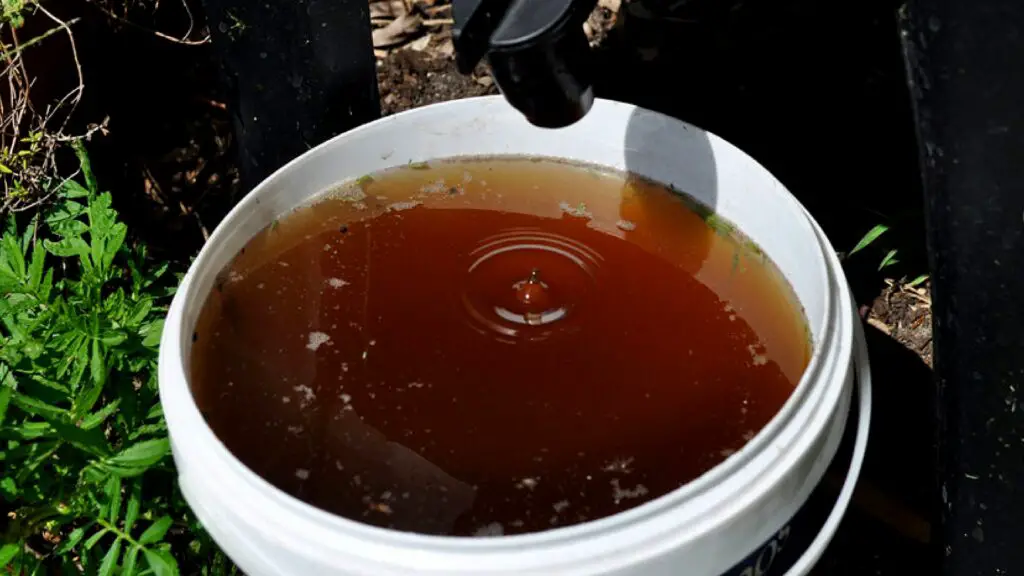
Source Image: gardening-abc.com
Pest and Disease Management
In addition to promoting plant health, compost tea exhibits potential in managing pests and diseases through its complex microbial communities and immune-boosting properties.
Role of Compost Tea in Pest and Disease Management
| Aspect | Description |
|---|---|
| Pathogen Suppression | Contains beneficial microorganisms that compete with harmful pathogens for resources and space, suppressing their growth. |
| Pest Deterrence | Encourages the growth of beneficial organisms that prey on pests or act as natural repellents, reducing pest populations. |
| Immune System Boost | Strengthens plant immune systems through the activation of defense mechanisms, making them more resistant to diseases. |
Integrated Pest Management (IPM): Incorporating compost tea applications into an IPM strategy can help reduce reliance on chemical pesticides while promoting a balanced ecosystem in the garden.
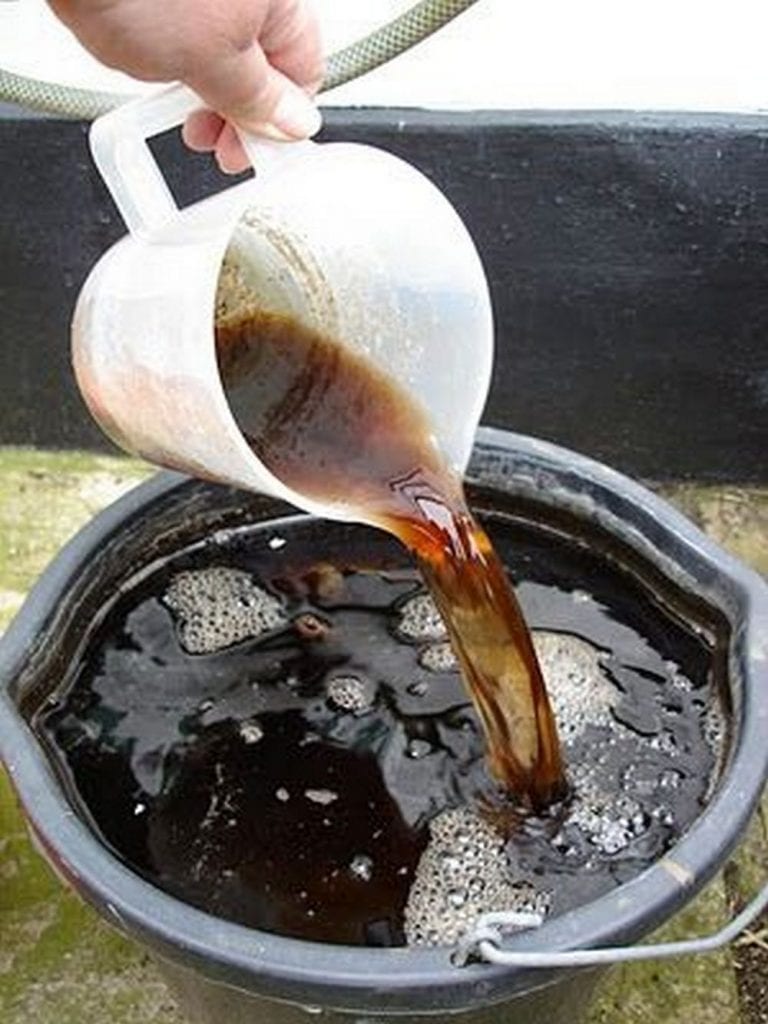
Source Image: gardens.theownerbuildernetwork.co
Environmental Benefits
The production and utilization of compost tea align with sustainable gardening practices, offering numerous environmental benefits and contributing to ecosystem health.
Environmental Benefits of Compost Tea
| Benefit | Description |
|---|---|
| Waste Reduction | Utilizes organic waste materials such as kitchen scraps and yard trimmings, reducing landfill waste. |
| Chemical Reduction | Decreases reliance on synthetic fertilizers and pesticides, minimizing chemical runoff and pollution. |
| Soil Regeneration | Promotes soil regeneration and biodiversity, fostering a healthy ecosystem and supporting wildlife. |
Cost Comparison
One of the most appealing aspects of homemade compost tea is its cost-effectiveness compared to commercially available soil amendments. Conducting a cost comparison can provide insight into the potential savings for budget-conscious gardeners.
Cost Comparison: Homemade Compost Tea vs. Commercial Amendments
| Aspect | Homemade Compost Tea | Commercial Amendments |
|---|---|---|
| Initial Investment | Requires minimal investment in equipment and ingredients. | Purchasing pre-packaged fertilizers and soil conditioners. |
| Long-Term Costs | Ongoing production costs are minimal, primarily consisting of water and occasional additives. | Consistent purchase of commercial products can add up over time. |
| Return on Investment | Provides substantial returns in improved soil health and plant growth, reducing the need for additional inputs. | Immediate results but may incur higher costs over time.
|
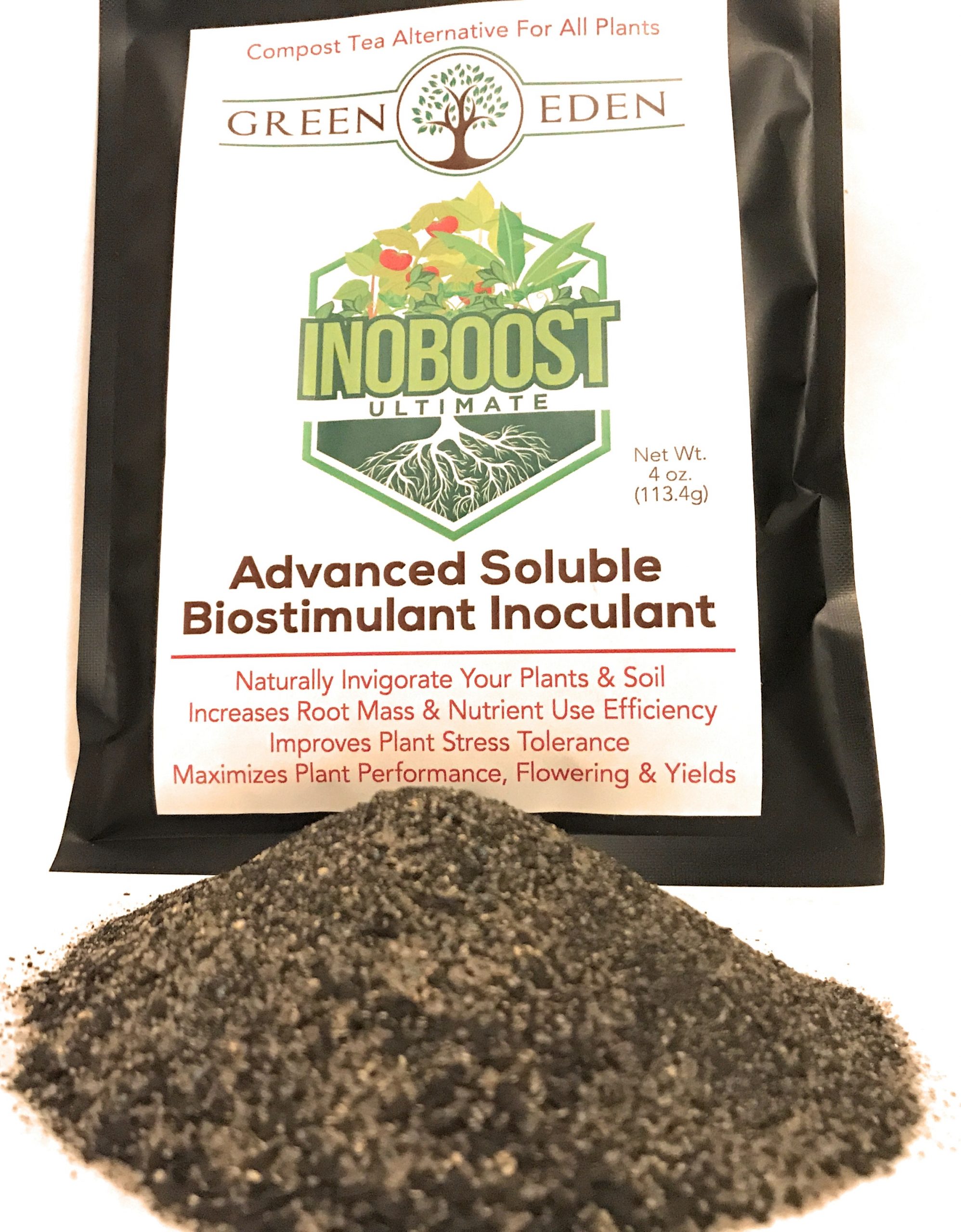
Source Image: greeneden.co
Creating Compost Tea for Soil Health
Troubleshooting and Tips
Despite its many benefits, brewing compost tea can sometimes pose challenges. Understanding common issues and employing effective troubleshooting techniques is essential for successful production.
Troubleshooting Common Issues in Compost Tea Brewing
| Issue | Solution |
|---|---|
| Foul Odor | Increase aeration and ensure proper oxygenation during brewing to prevent anaerobic conditions. |
| Excessive Foam | Adjust brewing time and aeration levels to prevent over-agitation and foam formation. |
| Low Microbial Activity | Incorporate fresh, high-quality compost and additives to boost microbial populations. |
Best Practices: Maintain cleanliness and hygiene throughout the brewing process to prevent contamination and ensure the production of high-quality compost tea.
Community and Education
Engaging with the gardening community and seeking out educational resources are invaluable steps in mastering the art of compost tea brewing. Collaborating with fellow gardeners and attending workshops can enhance skills and knowledge in sustainable gardening practices.
Fostering Community Engagement
- Online Forums and Groups: Join gardening forums and social media groups to share experiences and learn from others.
- Local Workshops and Events: Attend workshops and events hosted by gardening clubs or community organizations to gain hands-on experience and expert advice.
Educational Resources: Explore books, articles, and online tutorials dedicated to compost tea production and application for comprehensive guidance and inspiration.

Source Image: www.pinterest.com
Homemade compost tea emerges as a cost-effective, eco-friendly, and versatile solution for enhancing soil health and promoting lush plant growth in budget gardening practices. By understanding the brewing process, application methods, and benefits of compost tea, gardeners can take proactive steps towards sustainable gardening and contribute to a greener, healthier planet.
As you embark on your compost tea journey, remember to experiment, learn from your experiences, and share your newfound knowledge with fellow gardeners. Together, we can cultivate thriving gardens and nurture vibrant ecosystems for generations to come. Happy brewing!


